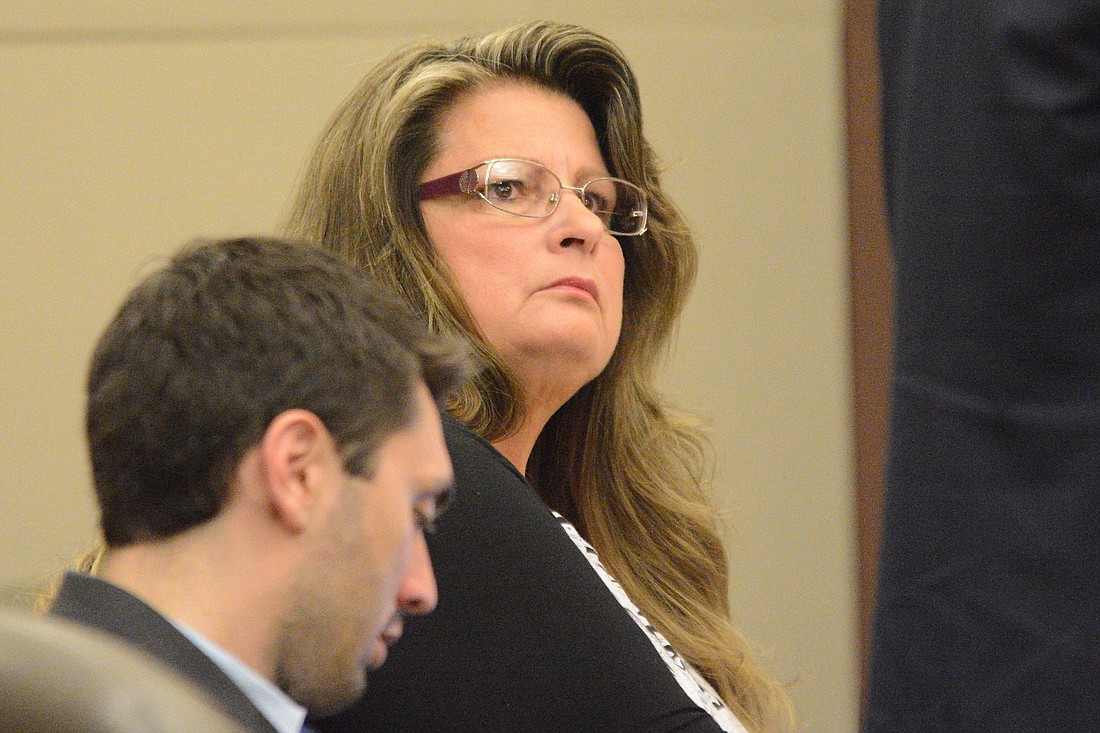- April 18, 2024
-
-
Loading

Loading

The case against former Flagler County Elections Supervisor Kimberle Weeks will continue with a pretrial hearing Feb. 24.
The defense team for Weeks is challenging the validity of each of the nine criminal charges remaining in her case, and challenging a search warrant that led to much of the prosecution's evidence.
Judge Margaret Hudson is considering the motion, was presented court Feb. 3, to dismiss the case. But the defense needed additional time to complete its presentation of a motion to suppress a search warrant that led to much of the prosecution's evidence. Hudson continued the case to 9:30 a.m. Feb. 24.
Weeks has been charged with surreptitiously recording the conversations of local and state officials and private individuals, including Florida Secretary of State Ken Detzner, County Attorney Al Hadeed, County Commissioner Charlie Ericksen and others, to "have leverage" over them, in the words of the prosecution.
The defense seeks to have the entire case dismissed, arguing that in each instance, the individuals Weeks had surreptitiously recorded did not have a reasonable expectation of privacy. The prosecution countered that they did have a reasonable expectation of privacy.
Hudson in June threw out three of the original 12 charges filed against Weeks. Those charges involved the release of one of Weeks' recordings — of a conversation between County Commissioner Charlie Ericksen and County Attorney Al Hadeed — after she'd played it at a public meeting, making it public record. (For a list of the original charges, click see the box at left. Counts seven, eight and nine have since been thrown out.)
In the courtroom Feb. 3, Weeks' attorney, Dean Bartzokiz, argues that the people she'd recorded didn't have a reasonable expectation of privacy — even though they weren't aware they were being recorded — because, in various instances, they were in a public office, speaking on a public phone line, there were other people around, or they were speaking in a room that had a sign on the door starting recordings might take place.
"There’s a subjective expectation of privacy ... and whether or to society is willing to recognize the expectation as reasonable," defense attorney Dean Bartzokis said in the court room.
The defense argued that in the specific cases in question, there were other relevant factors: Yes, some of the conversations took place in government offices, Assistant State Attorney Jason Lewis said, but they were within an employee's private office; or the phone lines in question were not main lines but lines to a articular staff member; other people were present during a conversation, but weren't strangers to the people involved; the conversation that took place in a room with a sign warning about recording also took place after Weeks had specifically told people that audio recording would not take place.
Responding to Bartzokis' statement that the people involved in many of the recordings were public officials discussing public business, Assistant State Attorney Jason Lewis said that didn't mean they did not have a reasonable expectation of privacy.
"Judge, thats’ just not what the law is," he said. "Otherwise, it would eviscerate any kind of privacy any public officials have."
The defense is also challenging a search warrant that let the FDLE search the Supervisor of Elections offices. That search led investigators to many of the surreptitious recordings that make up the bulk of the case.
Lewis wanted Weeks to take the stand Feb. 3 to establish her standing to challenge that warrant, which would mean establishing that some of the items seized were her personal items or ones only she had access to.
The defense declined to put Weeks on the stand. Instead, the defense asked for, and received, a continuation in order to bring the Florida Department of Law Enforcement investigator who'd directed the search back to court for questioning.